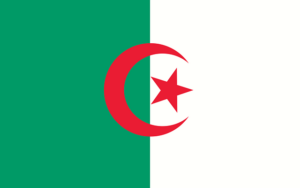The Maghreb state in northern Africa has been intensifying its efforts to develop a diversified economy for several years now to offset its continued, heavy economic dependence on oil and gas exports.
The country has recently achieved significant successes, particularly in the areas of mining, healthcare, construction, agriculture, food, and renewable energies. The “SoutH² Corridor” megaproject, which aims to build a 3,300-kilometre hydrogen pipeline from North Africa through Italy and Austria to Germany, is just one of many forward-looking European-Algerian collaborations.
The Algerian government is also contributing to this upward trend with a bunch of new laws. The hydrocarbon law, which came into force in January 2020, has significantly reduced the tax burden on international donors. Another milestone is likely to be the modernized Investment law from 28 July 2022. The regulation is intended to simplify application processes for approvals and funding, ensure transparency in the awarding of funds and guarantee legal certainty for ten years. A legal regulation that prohibited foreign investors from acquiring a stake of more than 49 per cent in a project in Algeria was already abolished in 2019.
The volume of trade between Germany and Algeria fell slightly to 3.6 billion euros in 2023 (2.3 per cent less than in 2022). However, a significant increase in German exports was recorded in the same period (22.8 per cent more than in 2022). Particularly popular goods from Germany are:
- chemical products
- mechanical engineering
- electrical engineering
- Automotive and automotive parts
- food products
- livestock


